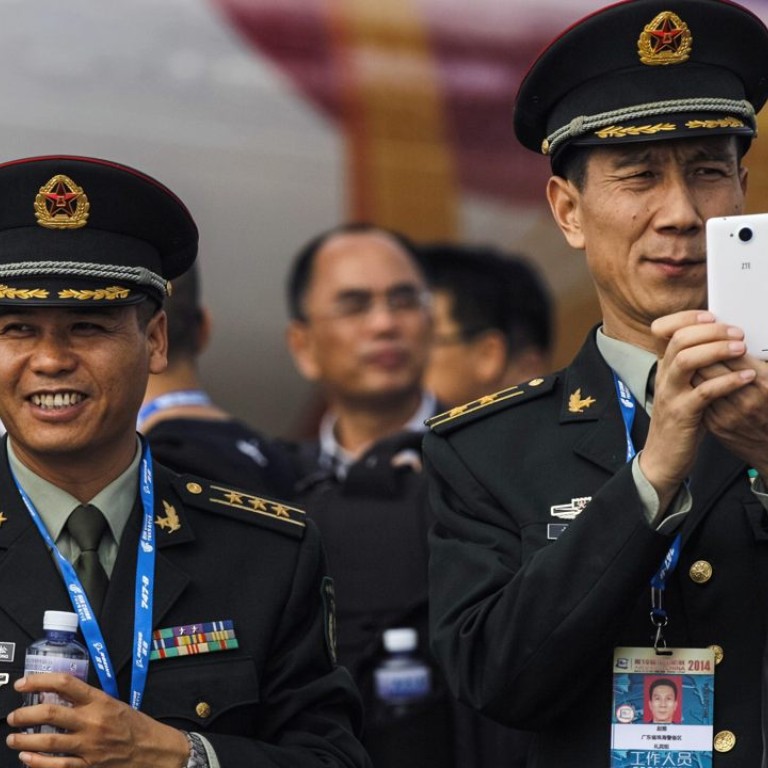
Warning shot: Soldier alerts PLA to military threat from car-hailing apps
Smartphones’ GPS location services can reveal personnel’s identity and exact location, army newspaper reports
Members of the armed forces have been warned not to use car-hailing apps on their mobile phones because the programs’ GPS location detection services could leak military secrets.
The warning came in a report on Monday in the People’s Liberation Army’s official newspaper.
The discovery came to light when a soldier – identified as Xiao Zhou – from an undisclosed brigade based in Liaoning province, called a taxi from his barracks on January 30 using an app installed on his phone, the PLA Daily reported.
As the taxi waited outside the barracks for Xiao Zhou, another soldier named Song Xianjie, who was on duty near the barracks’ entrance, questioned the driver.
READ MORE: Chinese military warned not give away ‘secrets’ on social media
Song reported to his superiors that the taxi driver’s phone not only displayed Xiao Zhou’s name and phone number, but also the barracks’ precise location. The confidentiality commission of Xiao Zhou’s brigade looked into the issue and announced that while car-hailing apps were convenient, they could easily leak sensitive information.
When a soldier called a taxi, the GPS location detection would be automatically activated, thereby exposing the caller’s location and personal information.
The report did not name the app used on Xiao Zhou’s phone.
According to the report, the PLA is now drafting a list of rules and regulations on the use and management of smartphones that are expected to restrict soldiers’ use of car-hailing apps to certain locations and times.
Seven specific venues – including artillery testing ranges, conference rooms and offices – would be declared off limits to the use of smartphones, the report said.
The army has also invited experts to give seminars to soldiers on how to prevent inadvertently leaking sensitive or classified information while using their phones.
The report said all members of Xiao Zhou’s brigade had their smartphones and sim card numbers registered under their real names.
All of them had signed letters of guarantee, promising not to use car-hailing apps if there was the possibility of leaking secrets.
Didi Kuaidi is the dominant car-hailing app on the mainland, followed by rival Uber China.

